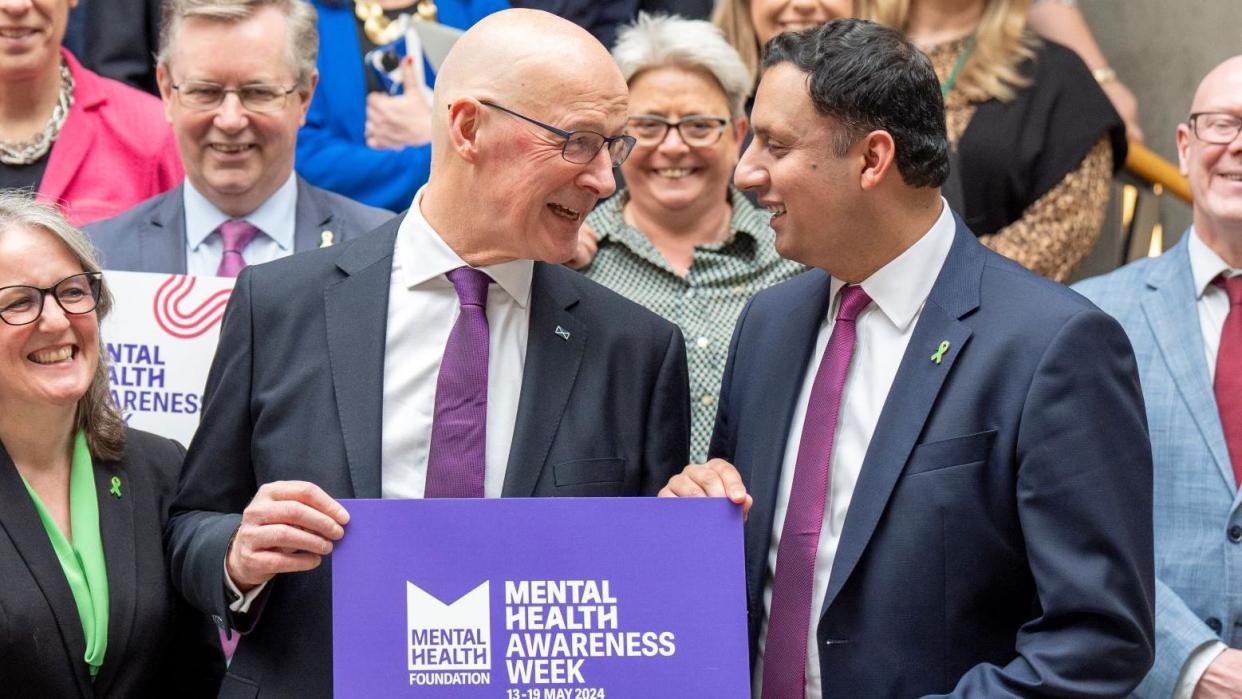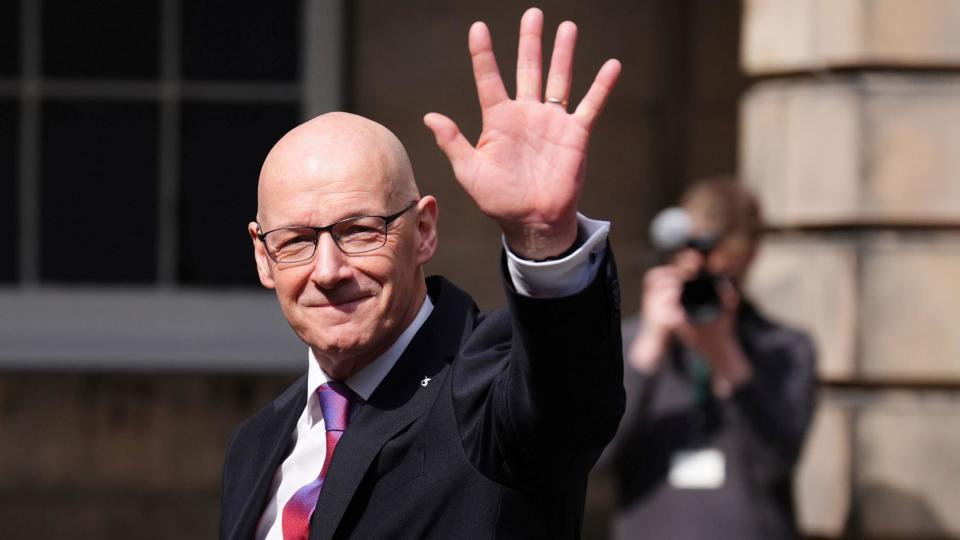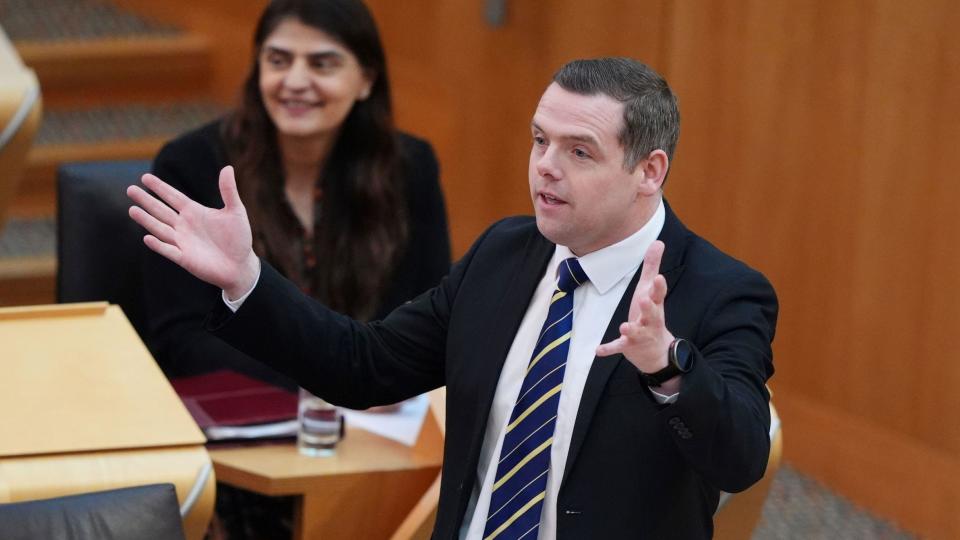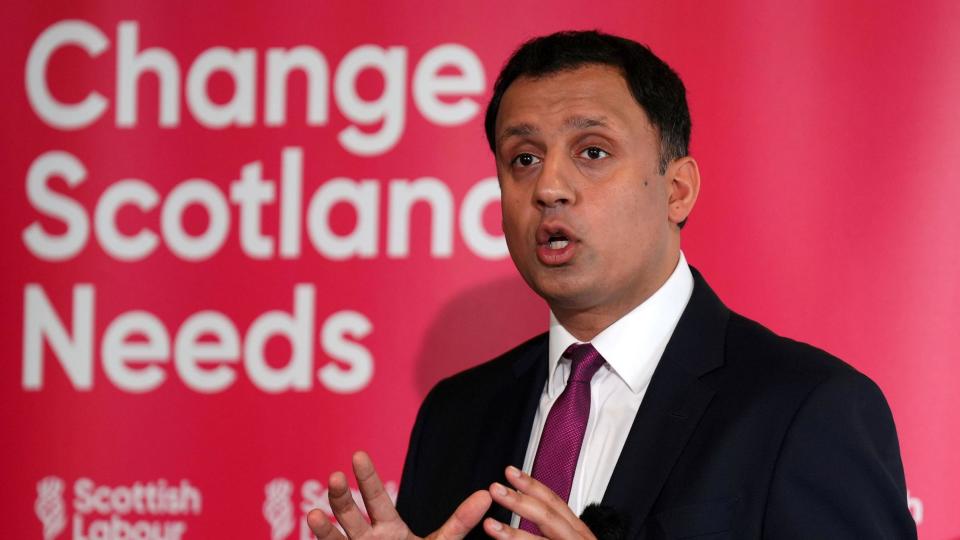Who are the leaders taking part in BBC Scotland's election debate?

Scottish politicians are currently out campaigning for the general election on 4 July.
While that will decide who holds the keys to 10 Downing Street, Scotland's parties have their own leaders in place who will clash in a BBC Scotland debate.
Here is our guide to who is at the helm of the SNP, Scottish Labour, the Scottish Conservatives, the Scottish Lib Dems and the Scottish Greens, appearing in the debate this evening.
John Swinney - SNP

John Swinney is in his second spell as SNP leader and is also Scotland's First Minister.
He took over the role after an uncontested leadership election in April to replace Humza Yousaf, who stood down after he ended the party's cooperation agreement with the Scottish Greens.
Long regarded as one of the party's heavyweights, Mr Swinney is a lifelong Nationalist who joined the party as a teenager and has been an MSP since the Scottish parliament was formed in 1999.
The 60-year-old served in a number of key government positions under both Alex Salmond and Nicola Sturgeon, including a nine-year tenure as finance secretary and five years as education secretary.
He also spent nearly a decade as deputy first minister, before moving to the backbenches when Nicola Sturgeon stood down as SNP leader last year.
At the time Mr Swinney declined to run in the leadership election to replace her, but returned to frontline politics when Mr Yousaf resigned, saying he felt re-energised.
His previous stint as party leader came with the SNP in opposition from 2000 until 2004, and he stood down from the post after disappointing results at European elections.
Douglas Ross - Scottish Conservatives

Scottish Conservative leader Douglas Ross made a surprise announcement on Monday. He plans to leave the role after the UK General Election on 4 July.
Mr Ross has been in post for four years, and been the leader of the opposition at Holyrood since his election as an MSP in 2021.
He previously spent time as an MSP in 2016 after being elected via the list system, and then switched to Westminster when he won the Moray seat in the 2017 general election, unseating the SNP's Angus Robertson.
He retained his House of Commons seat in the 2019 election, and spent several months as a Scotland Office minister in Boris Johnson's government - a role he quit in protest over Mr Johnson's chief of staff Dominic Cummings breaching covid guidelines on his infamous trip to Barnard Castle.
However, Mr Ross soon won the Tory leadership in Scotland after Jackson Carlaw resigned, and he returned to Holyrood in 2021, once again via the list system.
He had originally promised that he would stand down as an MP to focus on Holyrood but reneged on that choice in controversial circumstances, and will be standing for the Aberdeenshire North and Moray East seat.
Aside from his political career, Mr Ross is also well known for serving as a linesman at Scottish and international fixtures - a role that has brought criticism politically and regular opprobrium from the stands.
Anas Sarwar - Scottish Labour

Anas Sarwar took over as Scottish Labour leader in 2021, when he defeated Monica Lennon in a leadership contest caused by the resignation of Richard Leonard.
Mr Sarwar has family ties to the party, as his father Mohammad Sarwar was an MP for more than a decade, winning the Glasgow Govan seat in 1997 and then taking the newly formed Glasgow Central constituency four years later.
When he stepped down in 2010, Anas Sarwar then won the seat and represented the area until 2014. He became an MSP in 2016.
His first tilt at the party leadership was unsuccessful, as Mr Sarwar, considered a centrist in the party, lost to Richard Leonard - a left-wing Corbynite and the man he would later replace in 2021.
At that year's Scottish election Labour suffered their worst result since devolution began, but Mr Sarwar was returned to Holyrood on the list.
Since then he has overseen an upswing in Labour's fortunes at the polls, including the party winning the Rutherglen and Hamilton West by-election last year.
Alex Cole-Hamilton - Scottish Liberal Democrats

Alex Cole-Hamilton has led the Scottish Liberal Democrats since August 2021, when he replaced Willie Rennie.
Born in Herefordshire, Mr Cole-Hamilton moved to Scotland as a child, and has been a member of the Lib Dems for more than two decades.
Following several prior unsuccessful attempts he entered Holyrood in 2016 when he won the Edinburgh Western seat, which he went on to retain in the 2021 election.
Later that year he was unopposed in the party's leadership election, which came after the party was reduced to four seats in the Holyrood election, despite Mr Rennie's regular and often ridiculous photo opportunities.
Earlier this year Mr Cole-Hamilton told BBC Scotland News he had been receiving therapy due to the amount of online abuse he has suffered in his role as party leader.
Lorna Slater - Scottish Greens
Unlike every other party taking part in the debate, the Scottish Greens have two leaders - Lorna Slater and Patrick Harvie.
Ms Slater was elected to Holyrood in 2021, where she and Mr Harvie guided the party to a record total of eight seats, and a partnership in government with the SNP which saw both Greens leaders hold junior ministerial positions.
The role gave her responsibility for policies including the deposit return scheme and marine protected areas.
Those positions were abolished when the Bute House Agreement collapsed earlier this year.
Lorna Slater was born in Calgary in Canada and graduated with a degree in electro-mechanical engineering design at the University of British Columbia in Vancouver.
Shortly after graduating she bought a one-way plane ticket to Glasgow with the intention of spending two years travelling around Europe - but instead remained in Scotland.
Ms Slater became involved in politics during the 2014 referendum, when she campaigned in favour of independence.
She became a co-convener of the Scottish Greens in 2019 and was elected to the Scottish Parliament as an MSP for the Lothian region in 2021.


